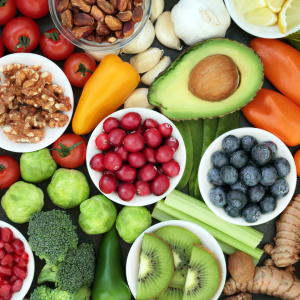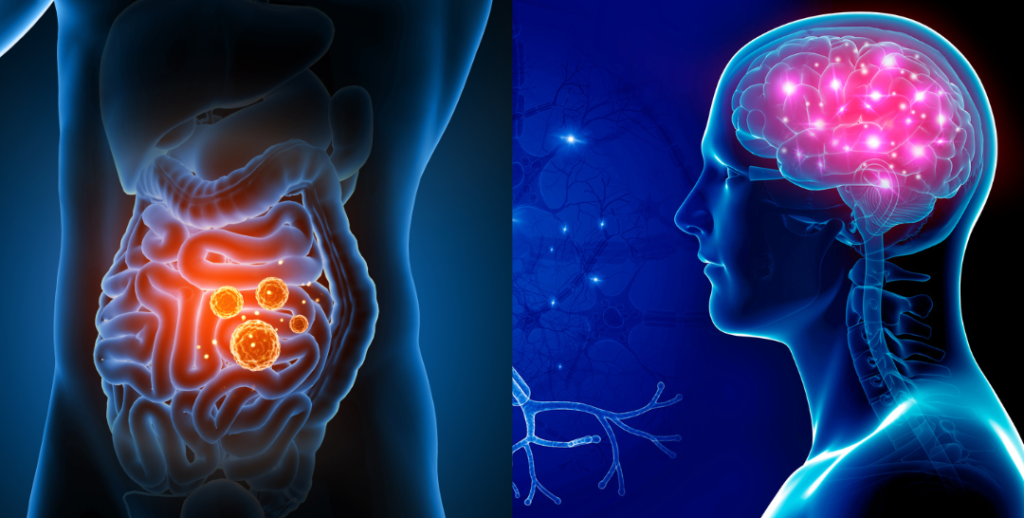
“All disease begins in the gut”
According to Hippocrates, an Ancient Greek physician who lived nearly 2500 years ago. Every time we eat, drink, or are exposed to chemicals and hormones, we are either feeding or fighting disease!
In both health and disease, diet is an important modulator of microbiota-gut-brain communication. As a result, diet-induced microbiome states can influence brain health and behavior.
What Is the Relationship Between the Gut and the Brain?
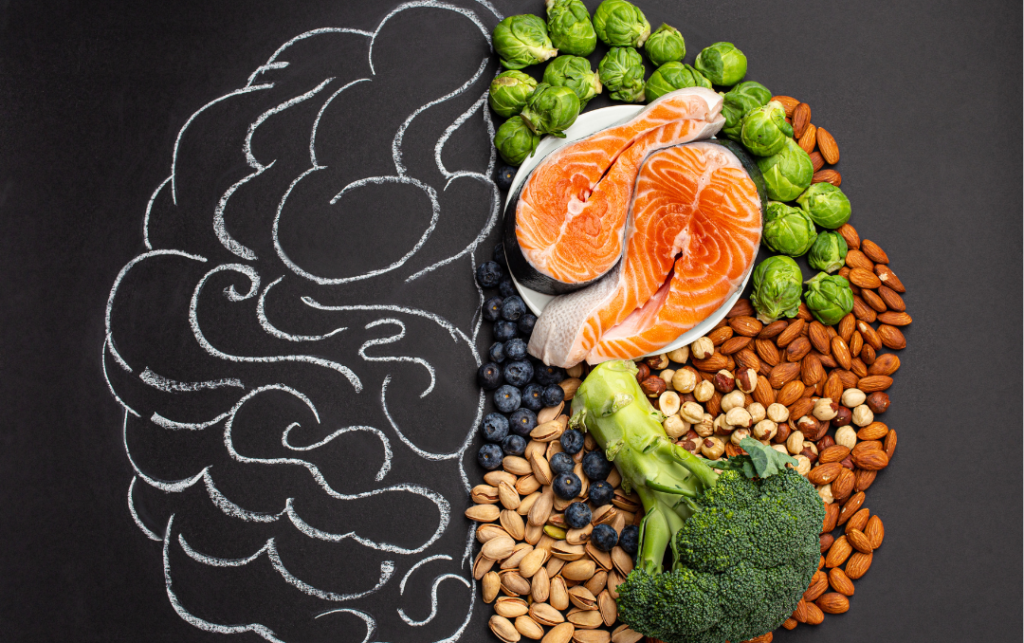
“The gut and brain connection” refers to the communication network that connects your gut to your brain. On some levels, your gut and brain are physically and biochemically connected. The human brain contains nearly 100 billion neurons, which are also found throughout the central nervous system. They are in charge of instructing the body on how to behave or act in specific situations.
Similarly, a human gut contains approximately 100 million neurons that are linked to the brain via nerves in the nervous system. The nerve that connects the brain and the gut is known as the “Vagus nerve,” and it is responsible for transmitting signals both ways. Furthermore, microbes in the human gut are responsible for producing chemicals that influence brain function.
The Gut-Brain Axis, Probiotics, and Prebiotics
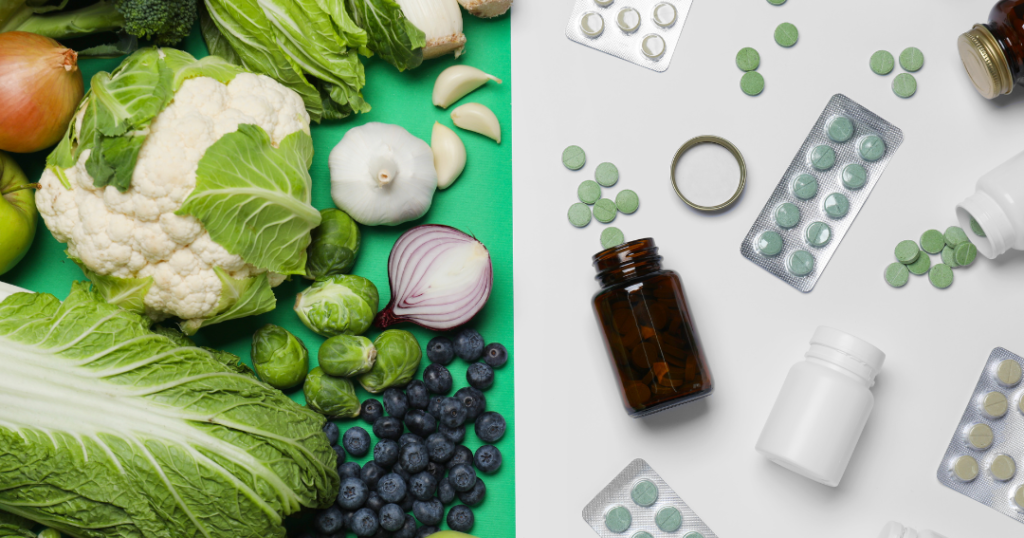
Several studies are being conducted to determine which factors can improve the gut-brain connection the most effectively. Making changes to your gut bacteria may significantly improve your brain’s health.
Probiotics, which are live bacteria, have an effect on the brain and they aid in the control of harmful microbes. Evidence presented in one of the studies suggests that individuals suffering from anxiety or depression can improve their mood and reduce the severity of their symptoms by taking prebiotics and probiotics.
Similarly, prebiotics have shown promising results in improving the brain-gut connection. Prebiotics are non-digestible food components. They promote the growth of beneficial friendly bacteria in the gut. They feed the gut microbe and produce short-chain fatty acids in the gut that improve immunity and reduce inflammation.
Gut-Brain Axis Supporting Foods
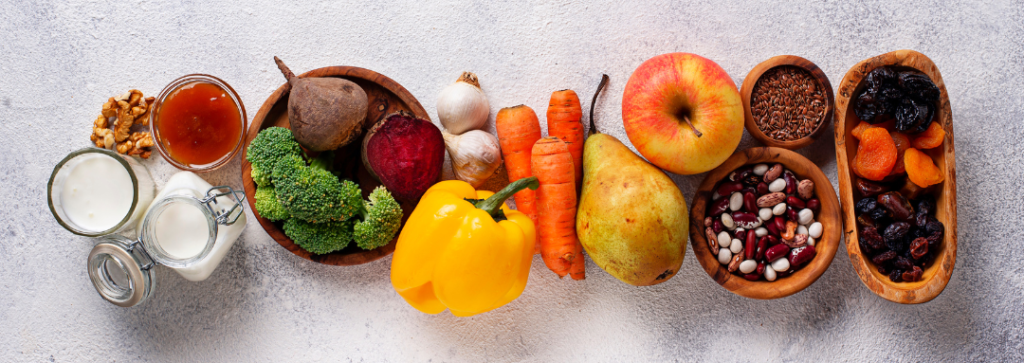
- Polyphenol-rich foods
- Fermented Foods
- Omega 3 rich foods
- Fiber-rich foods
Polyphenol-rich foods: Abundantly available in a wide variety of fresh and healthful foods. Blueberries, plums, cherries, apples, strawberries, black currants, black olives, dark chocolate, and hazelnuts are some examples. Turmeric, cloves, cinnamon, ginger, and cumin are among the spices high in polyphenols. Polyphenols can protect neurons from injury while also suppressing neuroinflammation, promoting memory, learning, and cognitive functions.
Fermented Foods: Fermented foods contain tryptophan, an essential amino acid that aids in the production of serotonin, a chemical that transports messages between nerve cells in the brain and is essential for body functions such as mood, sleep, and digestion. Probiotics found in fermented foods may influence brain function through the gut microbiota. A growing body of evidence suggests that gut microbiota is also important for central nervous system function.
Omega 3 rich foods: Omega-3s are found naturally in some foods such as Fish and other seafood (especially cold-water fatty fish, such as salmon, mackerel, tuna, herring, and sardines),
Nuts and seeds (such as flaxseed, chia seeds, and walnuts). Omega-3 PUFAs can help diseases by reverting the microbiota composition and increasing the production of anti-inflammatory compounds like short-chain fatty acids. Human and animal studies have shown that omega-3 PUFAs can influence the gut-brain axis via gut microbiota composition.
Fiber-rich foods: Whole grains, nuts, seeds, fruits, and vegetables are all high in prebiotic fibers, which are beneficial to your gut bacteria. They can lower stress hormone levels in humans. Ingested dietary fiber is digested by intestinal bacteria, which produces short-chain fatty acids as essential metabolites. These metabolites are known to be involved in a variety of brain functions.
Conclusion:
In conclusion, the ancient wisdom emphasizing the link between our choices in eating, drinking, and exposure to various elements and their impact on disease, resonates with contemporary scientific understanding. The intricate connection between the gut and the brain, known as the gut-brain axis, underscores the vital role of diet in modulating microbiota and influencing brain health and behavior.
Studies investigating the gut-brain axis reveal the positive impact of interventions such as probiotics, prebiotics, and specific dietary choices on mental well-being. The dietary choices not only contribute to physical well-being but also play a crucial role in maintaining optimal brain function. As we navigate the intricate pathways of the gut-brain axis, the evidence suggests that embracing a diet rich in beneficial nutrients and fostering a diverse and balanced gut microbiome can be instrumental in promoting both physical and mental health.
Click on explore to learn more about your gut health.
References
Costantini, Lara, et al. “Impact of Omega-3 Fatty Acids on the Gut Microbiota.” International Journal of molecular sciences, vol. 18, no. 12, 2017.
Fabiani, Helena, and Henny Tannady Tan. “The Importance of Dietary Fiber on Stress Hormone in Pregnancy: A Literature Review.” Journal of Midwifery, vol. 5, no. 1.
Filosa, Stefania, et al. “Polyphenols-gut microbiota interplay and brain neuromodulation.” Neural regeneration research, vol. 13, no. 21, 2018, pp. 2055–2059.
Kim, Binna, et al. “A Review of Fermented Foods with Beneficial Effects on Brain and Cognitive Function.” Preventive nutrition and food science, vol. 21, no. 4, 2016, pp. 297–309.

